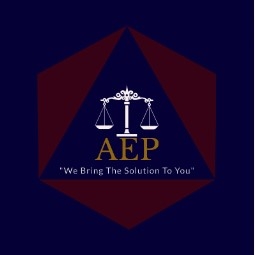What is Mediation?
Mediation is a form of Alternative Dispute Resolution that has been used for over 2000 years. Its origins date back to Ancient Greece, where there were appointed members of society that would intervene and assist citizens with their disputes. This was done to maintain peace and order within their society. This cultural method of the Ancient Greek peoples has not only remained a valuable part of their society, but has become very popular all over the world in modern time. The United States adopted the method in the 1960s when laborers began to strike and demand better pay and conditions. Because of the success found in mediation with those labor dispute issues, mediation has been adopted by most US Courts. The use of mediation helps to lighten the burden on the judicial system, and resolve conflicts in the earlier stages, rather than moving the cases all the way to the trial phase; which is very costly to parties/courts.
Modern day mediators are far more than village elders calming arguments about cattle. Most mediators are highly educated professionals trained in the art and methods of dispute resolution. They are well equipped to find the issues that are sometimes not the issues the parties are stating, but more underlying issues that needed assistance being discovered and defined. Mediators are able to clarify issues, address them, and assist the parties in discovering unique and customized solutions to their issues. The mediator is always neutral and has the sole goal of ensuring all parties are able to make informed and empowered decisions. The mediator takes full control of the tone and rhythms of the communications, but never the ending result. All results of mediation are determined by the clients.
Mediation is always a voluntary process. This may sound strange, as many litigants are ordered to mediation, but no party is ordered to resolve the dispute. A judge will take on the task of making the final decisions on how a dispute between litigants will conclude, if mediation is unsuccessful at resolving the dispute. When parties are ordered to mediation, they are merely ordered to sit with a professional mediator to see if they can resolve the conflict on their own terms. We, in the world of alternative dispute resolution, believe mediation is the best form of conflict resolution, as no person knows the complexity of a matter more intimately than the parties involved, so they are the best equipped to choose a resolution that best fits the circumstances. A very high number of mediations are successful in resolving most, if not all, issues of a case. Most people have very positive experiences with mediation, and take advantage of the opportunity to make the important decisions themselves, rather than rolling the dice with allowing a Judge or Jury decide their matter. Mediation is also a great way to really understand the other party's position on a matter, and brings to light many issues of miscommunications that have transpired in the past. At the very least, when an agreement is not reached, the parties are far more prepared for court, as the issues have been better defined and all parties are more informed.
Mediation is confidential. There are exceptions to confidentiality, such as discussions of abuse or neglect of a child or elderly person, the planning of committing a crime in the near future, fraud, and things of that nature. Another exception is, if all parties agree to waive the confidentiality. There are other exceptions, but these are the most common examples. Any agreements reached in mediation, put into writing, and signed by parties, can be submitted to the court, and eventually adopted and made a court order. All agreements made in mediation that come to writing and are signed by all parties are legally binding. The parties can choose to have the agreement remain confidential, but most agreements submitted to the court become court record, and therefore public record.





Comments